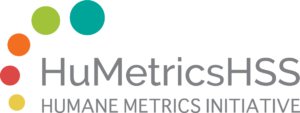First day at #TriangleSCI working with the #HuMetrics team. It is quite amazing what can happen when you put together in a room people from faculty administration, granting agencies, and societies with scholarly communication, information science, and metrics experts — without the constraints of their everyday working environment and with the freedom (and time) to brainstorm.
Today we have been shaping our work on #HuMetrics with an approach that sets values for scholarly excellence (in the “doing good” sense of excellence) at the core: metrics will follow from an analysis of how values shall shape scholarly practices and not the other way around — e.g., if “openness” and “transparency” and “collaboration” are some of those values, metrics should encourage and drive scholarly practices toward embracing these values, and scholars should be rewarded accordingly for both the processes and outputs of their scholarship.
This “reverse-engineering” approach sounds very much like a social experiment: how can we develop a framework for humanities scholarship (and the various actors in the system) such that practices, outputs, and metrics are value-driven? How can we make the framework actionable? What kind of infrastructure would be needed to support such a framework? Well, we are not there yet, but we still have three days… Reality check tomorrow afternoon.
Follow team #HuMetrics as we wrestle with humanities metrics. We are Christopher Long, Rebecca Kennison, Stacy Konkiel, Simone Sacchi, Jason Rhody, and Nicky Agate, and we’ll be writing here all week.
